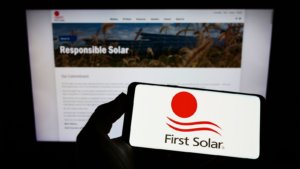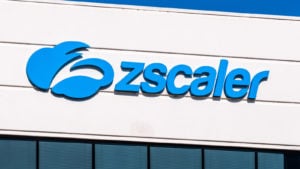
The downgraded stocks continue to trade near record highs despite the recent pressure from rising bond yields. Investors were digesting the U.S. Commerce Department’s report last week, which indicated that the U.S. economy’s first-quarter growth was slower than initially estimated.
The revised figures showed an annualized growth rate of 1.3%, a drop from the advance estimates of 1.6%. Investment officers and financial experts interpret the economic signals as potential indicators that the Federal Reserve might lean toward a rate cut due to a slowdown in the economy and consumer spending.
This perceived likelihood of a rate cut is seen as a factor that could drive stock prices higher despite concerns from fundamental investors about the implications of decelerating economic growth and corporate earnings on the stock market.
Further analysis of the GDP data revealed a slight downward adjustment in personal consumption expenditures, which was unexpected and contributed to the market’s reaction. The macro backdrop remains supportive for equities, with the S&P 500 expected to sustain gains above 5,000.
Still, rising bond yields are likely to pressure expensive stocks, especially those with strong year-to-date gains. Moreover, the sector-specific issues are likely to be exaggerated in the environment of high bond yields.
In this article, we examine three downgraded stocks that were degraded by at least two research firms last week.
First Solar (FSLR)

First Solar (NASDAQ:FSLR) is a leading American solar technology company specializing in manufacturing solar panels and providing utility-scale PV power plants. The company primarily serves utility companies, commercial and industrial customers and is a significant player in the global solar energy market.
Last week, the company’s stock saw a shift in ratings from two different financial institutions. DZ Bank changed its stance on the solar panel manufacturer, downgrading the stock from Buy to Hold. Concurrently, Mizuho (NYSE:MFG) also adjusted its rating on First Solar from Buy to Neutral.
Despite the downgrade, Mizuho increased its price target for the company’s shares to $274.00, up from the previous target of $209. The adjustments in stock ratings and price targets come amid a recognition of First Solar’s market position and a recent stock rally.
“We downgrade on valuation as stock reflects strong pricing power, and due to limited upside in our bull case ($325),” Mizuho analysts said in a note.
The solar panel manufacturer is anticipated to benefit from increased pricing power due to growing import tariffs and a lack of domestic competition expected to persist over the next three years. These factors will contribute to stable pricing for the company’s products through 2029.
However, the current stock price is believed to reflect the company’s strong positioning already. Furthermore, Mizuho’s analysis suggests limited upside potential, hence the downgrade call.
UiPath (PATH)

UiPath (NYSE:PATH), featured among the downgraded stocks, is a global software company that develops robotic process automation (RPA) solutions. Its platform enables businesses to automate repetitive tasks, enhancing efficiency and productivity across various industries. UiPath’s products include Studio for designing automation workflows, Robots for executing them, and Orchestrator for managing automation.
UiPath stock tumbled last week following a weak earnings report and as many as six analyst downgrades. Both Needham and BofA Securities issued downgrades for UiPath stock, citing multiple challenges, including a recent CEO change and execution uncertainties.
Needham shifted its rating from Buy to Hold, while BofA Securities adjusted its stance from Buy to Neutral. Needham’s decision comes in the wake of several factors that are perceived to affect UiPath’s near-term performance. These include broader macroeconomic pressures, potential disruptions from the recent CEO transition back to founder Daniel Dines following Rob Enslin’s departure, and a shift in the company’s go-to-market (GTM) strategy.
Moreover, concerns were raised over year-over-year margin compression. The firm noted that UiPath’s first-quarter fiscal year 2025 sales metrics were mildly disappointing. On the other hand, BofA said that the rationale behind the lowered rating is a sharp deceleration in growth due to increasing macroeconomic pressures, execution issues and abrupt management change.
Analysts believe that a re-acceleration of growth is necessary for the stock to gain momentum. In the meantime, both analyst firms have expressed caution regarding UiPath’s short-term outlook.
Zscaler (ZS)

Zscaler (NASDAQ:ZS), one of the downgraded stocks, is a cloud-based information security company that provides internet security, web security, and networking solutions. Its flagship products, Zscaler Internet Access (ZIA) and Zscaler Private Access (ZPA), offer secure access to the internet and internal applications, respectively, through a cloud-native platform.
Zscaler faced downgrades from analysts at two financial institutions. Wells Fargo (NYSE:WFC) shifted its rating from Overweight to Equal Weight and slashed its price target to $182 from the previous $275. The firm cited concerns such as heightened competition in the sector and an uptick in sales executive departures, which could disrupt the company’s performance.
Rosenblatt also revised its stance on Zscaler, moving from a Buy to a Neutral rating and setting a price target of $190. The downgrade was delivered ahead of the company’s scheduled third-quarter earnings release, which – interestingly – sent shares higher.
Rosenblatt expressed reservations about Zscaler’s capacity to maintain its rapid revenue growth into FY25. Rosenblatt’s concerns revolve around the sustainability of growth, considering factors such as sales attrition and competition, particularly in the mid-market segment.
On the date of publication, Shane Neagle did not hold (either directly or indirectly) any positions in the securities mentioned in this article. The opinions expressed in this article are those of the writer, subject to the InvestorPlace.com Publishing Guidelines.






